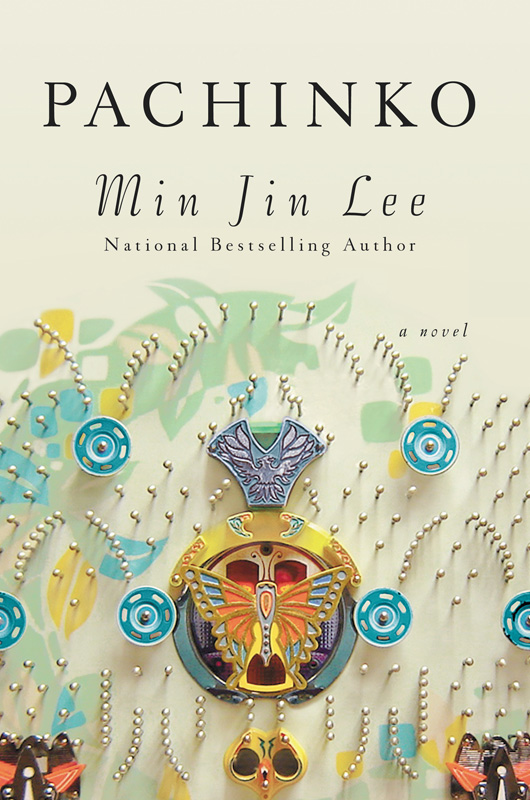Author Min Jin Lee says she loves Martha’s Vineyard, and that she should be easy to spot at her favorite place, Morning Glory Farm. “If you can recognize a really tall Korean-American person eating a lot of pie, like even before she paid for it, that would be me,” she said.
Ms. Lee may love blueberry pie, but the Korean-Japanese characters in her novel Pachinko pull themselves up with kimchi. Pachinko is a nearly 500-page book that follows one family for seven tumultuous decades. Cultures clash and fates spiral. Wars are fought and babies are born. Like in the pinball-esque game of Pachinko, the pieces fall where they may.
In the early 1900s, young Sunja becomes pregnant with the child of a wealthy stranger. A baby born out of wedlock in 20th-century Korea is a societal death sentence, but a Christian minister offers to marry the young woman and bring her to Japan. Life goes from tough to torturous when the minister is thrown in jail for refusing to pledge allegiance to the Emperor. But Sunja and her sister in law Kyunghee manage to support themselves with their recipe for spicy pickled cabbage.
“Kimchi is something you can make,” Ms. Lee said of the womens’ vocation. “It’s something you can do to actually control your own destiny. You can sell this thing that has very low capital requirements and hopefully turn a profit and then reinvest in your business tomorrow.”
But even when Sunja and Kyunghee find a way to take their lives into their own hands, disaster still looms around every corner. “How about if the refrigerator breaks down and everything that we’ve made goes wrong?” Ms. Lee said of her characters’ fate. “There’s still so many things that we can’t control. We still have to wake up in the morning and try again.”
Over time, Sunja gives birth to her son, has several miscarriages and finally gives birth to another child. Although she escaped the indignity of raising her children without a husband, the hostility she faces in Japan at the beginning of World War II doesn’t amount to a better life. Prejudice against people who are Korean is vicious. Doctors refuse to pay visits and companies refuse to hire.
As the terror unfolds, Sunja’s sons fight the feeling that they don’t belong anywhere. Mozasu, her second-born, says, “In Seoul, people like me get called Japanese bastard, and in Japan I’m just another dirty Korean no matter how much money I make or how nice I am.”
Mozasu and his brother Noa both find work in one of the few avenues open to Koreans: Pachinko Parlors.
“Pachinko is absolutely a metaphor,” Ms. Lee said. “It’s a metaphor for the story because Pachinko, which is an adult gambling game, is like any other gambling game — stacked in favor of the house.”
People who play Pachinko know what they’re up against. “One of the things that we feel as we get older is that even though we keep trying, we feel like maybe sometimes the rules aren’t fair,” Ms. Lee said. “Maybe we need a little extra advantage and yet, we don’t give up because we know that we have to try. And I think that’s what life really is. There’s a part of you that has to have a sense of blind hope. Like, maybe we’ll get lucky. Maybe we’re going to make it.”
Sunja and her family do make it, although not without endless challenges.
“They were not blind to the fact that things were unfair,” Ms. Lee said. “They were actually very cognizant of it. At the same time they continued to be very tough and also very tender. And that’s really an amazing thing.”
Min Jin Lee will speak on Saturday at 3 p.m. the Harbor View Hotel, and on Sunday at 11:45 a.m. at the Chilmark Community Center.








Comments
Comment policy »